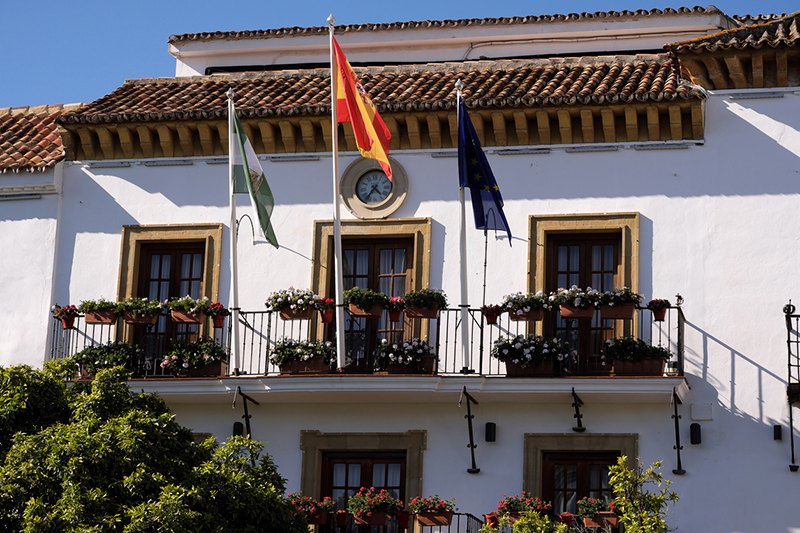
Property Taxes in Spain
Alexey | · 11 min. read
Purchasing property in Spain is an attractive proposition for both residents and non-residents alike. The country’s rich cultural heritage, favorable climate, and dynamic real estate market draw investors from all over the world. Whether you're buying a luxury villa in Marbella or a charming apartment in Barcelona, it is essential to understand property taxes in Spain to avoid unexpected financial complications and to make well-informed decisions.
Property taxes in Spain can be intricate and are typically levied at the national, regional, and municipal levels. To successfully navigate this system, buyers and owners must be aware of various taxes related to purchasing, holding, and selling properties. In this guide, we’ll cover everything you need to know about property taxes in Spain to ensure a smooth experience as a buyer or an owner.
- Table of contents
- Overview of the Spanish Property Tax System
- How Property Taxes in Spain Impact Buyers and Owners
- Tax Considerations for Marbella Property Owners
- FAQ About Property Taxes in Spain
- Top Tips for Managing Property Taxes in Spain
- Final Thoughts: Navigating Property Taxes in Spain with Confidence
Overview of the Spanish Property Tax System
Spain’s property tax system is composed of several taxes imposed on property transactions, ownership, and wealth. These taxes differ based on factors such as residency status, property type, and location.
Here's a summary of the primary property taxes in Spain:
- Impuesto sobre Bienes Inmuebles (IBI): An annual municipal tax based on the property's cadastral value (government-assessed value).
- Plusvalía Municipal: A local tax on the increase in land value when a property is sold, transferred, or inherited.
- Impuesto sobre la Renta de No Residentes (IRNR): A non-resident income tax on rental income or deemed rental income from Spanish properties.
- Wealth Tax (Impuesto sobre el Patrimonio): An annual tax on net assets exceeding a specific threshold, applicable to both residents and non-residents.
- Value Added Tax (VAT or IVA): Levied on newly constructed properties when purchased directly from a developer.
Understanding these taxes is crucial for financial planning, whether you are buying, holding, or selling property in Spain. Let’s examine each of these taxes in more detail.

1. Impuesto sobre Bienes Inmuebles (IBI): Annual Property Tax
Impuesto sobre Bienes Inmuebles (IBI) is a municipal tax applied annually to property owners, based on the property's cadastral value - which is determined by local authorities and often differs from the market value. The tax is used to fund essential local services, such as road maintenance, street lighting, and waste collection.
In popular areas like Marbella, where property values tend to be higher, IBI rates can be closer to 0.8%, making it important for owners to ensure their cadastral value is updated to avoid overpayment or underpayment.
Key Features of IBI:
- Tax Rate: Typically ranges from 0.4% to 1.1% of the cadastral value.
- Payment: Due annually, with notifications sent by the local town hall.
- Penalties for Late Payment: Late payments can result in penalties and interest, with continued non-payment possibly leading to legal action.
- Cadastral Value Review: Owners should be aware that the cadastral value may be updated after renovations or changes in market conditions.
To effectively manage your IBI, it’s essential to stay informed of local changes, set aside funds for the annual payment, and seek professional advice if the cadastral value seems inaccurate. Proper planning ensures this recurring tax won’t catch you off guard.
For more details on IBI, including payment options and specific rates in different municipalities, you can visit the official website of the Malaga City Council.
2. Plusvalía Municipal: Tax on Land Value Appreciation
The Plusvalía Municipal tax is applied when a property is sold, inherited, or transferred, based on the increase in the land's value during the period of ownership.
In high-value areas like Marbella, where land prices have appreciated significantly, this tax can represent a considerable cost when selling or transferring property, cutting into the final profit.
Key Features of Plusvalía Municipal:
- Tax Basis: Calculated on the land’s cadastral value and the number of years the property was owned.
- Tax Rate: Varies by municipality, so it’s important to verify local rates.
- Applicability: This tax is triggered upon the sale, inheritance, or gifting of property.
When planning to sell or transfer a property, it’s wise to account for Plusvalía in your financial estimates. Consulting a tax advisor can help you understand your liabilities, especially in high-demand markets, and time your property sale for the most tax-efficient outcome.
You can consult the official Marbella Town Hall website or the Provincial Tax Collection Board of Malaga for specific details and municipal rates in Marbella.

3. Impuesto sobre la Renta de No Residentes (IRNR): Non-Resident Income Tax
The IRNR is imposed on non-resident property owners in Spain, whether the property is rented or not. Non-resident owners are taxed on their rental income, or if the property is not rented, they are taxed on "deemed" rental income based on the property’s cadastral value.
For example, even in high-demand areas where properties remain vacant, owners could face significant tax obligations based on this deemed income.
Key Features of IRNR:
- Tax Rate: 24% of rental income for non-EU residents. EU/EEA residents may benefit from deductions.
- Deemed Rental Income: If the property is not rented, the tax is based on 1.1% or 2% of the cadastral value, depending on when the value was last updated.
- Filing Obligations: Non-resident owners must file an annual IRNR return, even if they don’t receive rental income.
To stay compliant, ensure timely filing of your tax returns and keep thorough records of any rental income and property expenses. Non-resident owners should consult tax professionals to explore deductions and avoid double taxation under Spain’s tax treaties.
To learn more about the IRNR, you can visit the official website (sede.agenciatributaria.gob.es) of the Spanish Tax Agency.
4. Wealth Tax (Impuesto sobre el Patrimonio): Annual Tax on Assets
Spain’s Wealth Tax is imposed annually on individuals whose net assets exceed certain thresholds. The tax is levied on residents for their worldwide assets, while non-residents are taxed only on assets within Spain.
In areas with high property values, such as Marbella, the accurate valuation of real estate assets is critical for calculating wealth tax liabilities.
Key Features of Wealth Tax:
- Tax-Free Allowance: Most regions offer an exemption for individuals with assets below €700,000, and an additional €300,000 exemption for the primary residence.
- Progressive Tax Rates: Ranging from 0.2% to 3.5%, depending on total asset value.
- Residency Status: Residents are taxed on worldwide assets, non-residents on Spanish assets only.
Managing your wealth tax effectively requires regular asset valuations, particularly for real estate. Tax advisors can help structure assets to minimize liability and ensure that all deductions and exemptions are utilized to their fullest.
The Spanish Tax Agency’s website provides detailed information on Wealth Tax regulations, exemptions, and rates.
5. Value Added Tax (VAT/IVA): Tax on New Property Purchases
Value Added Tax (VAT) applies to newly constructed properties purchased directly from developers. Buyers of new-build homes in Spain face a 10% VAT charge on the purchase price. This tax can significantly increase the upfront costs of buying property, particularly in areas where new constructions are in high demand, such as Marbella.
Key Features of VAT:
- Standard VAT Rate: 10% for residential properties; and 21% for commercial properties or land.
- Applicability: VAT is only applied to new-build properties or those bought from a developer. Resale properties are subject to Impuesto de Transmisiones Patrimoniales (ITP), typically between 6% and 10%.
When planning to buy a new-build property, ensure that VAT is factored into your budget, as it can affect the size of your mortgage and the overall affordability of the property. It’s also important to consult a financial advisor to ensure you’re fully aware of how VAT might impact your long-term investment.
How Property Taxes in Spain Impact Buyers and Owners
Understanding the various property taxes in Spain is crucial for both buyers and owners, as these taxes can significantly impact financial decisions.
For buyers
Taxes such as IBI, Plusvalía Municipal, and VAT add to the overall purchase cost of the property, making it essential to factor them into the total investment. These taxes can also influence mortgage terms, as higher upfront costs may require larger loans. Additionally, being aware of property taxes in Spain allows buyers to accurately forecast their return on investment and plan for ongoing expenses.
For property owners
Annual taxes like IBI, IRNR, and Wealth Tax become recurring obligations that need to be incorporated into yearly financial planning. Non-resident owners, in particular, must manage rental income and ensure they comply with Spain’s tax filing requirements, including filing for IRNR. When it comes time to sell, owners face additional taxes, such as Plusvalía Municipal and potentially capital gains tax, which can affect their profits.
Tax Considerations for Marbella Property Owners
Marbella, situated along the Costa del Sol, is renowned for its luxury properties and high-end real estate market. However, property owners in Marbella must navigate a complex tax landscape. High property values mean that taxes such as IBI, Plusvalía Municipal, and Wealth Tax can be significant, making it essential for property owners to plan their tax liabilities carefully.
Marbella-Specific Tax Tips:
- Plan Ahead: For both buyers and sellers, it is vital to account for taxes like Plusvalía Municipal and VAT, as they can be substantial in high-value transactions.
- Work with Professionals: Given the complexity of the tax system and the high stakes involved in Marbella’s property market, working with a local tax advisor is crucial to ensure compliance and optimize your tax strategy.

FAQ About Property Taxes in Spain
Navigating property taxes in Spain can be challenging, and many potential buyers and owners have questions. Here are answers to some of the most frequently asked questions, along with where to find more detailed information in this article:
- Do I need to pay property taxes if I don’t rent out my property?
Yes, you are still liable for taxes like IBI and the deemed rental income tax (IRNR), regardless of whether your property is rented out. - Can I deduct property taxes in Spain from my income taxes?
Certain property-related expenses may be deductible. It’s crucial to consult with a tax advisor for personalized advice regarding deductions applicable to your situation. - How often are property tax rates reviewed?
Property tax rates, such as IBI and Plusvalía Municipal, are typically reviewed annually by local municipalities. - Are there any exemptions or reductions available for property taxes?
Yes, exemptions or reductions may apply based on various factors, including property usage. - How do I appeal my cadastral value if I believe it’s incorrect?
Property owners can appeal by submitting a request to the local municipality, with evidence to support their claim.
Top Tips for Managing Property Taxes in Spain
Navigating the property tax system in Spain can be daunting, but careful planning can help you avoid costly mistakes. Whether you're a buyer, seller, or long-term property owner, understanding Spain's property taxes is essential for successful real estate transactions. Keep in mind to:
- Know Your Tax Obligations: Familiarize yourself with all applicable property taxes in Spain, including IBI, IRNR, Plusvalía Municipal, and Wealth Tax.
- Plan for Transaction Costs: When buying or selling property, taxes like VAT and Plusvalía Municipal can add significantly to your overall costs.
- Consult with Experts: Work with a tax advisor or real estate professional to ensure compliance and explore strategies to minimize your tax liabilities.
By understanding the intricacies of property taxes in Spain, you'll be better equipped to make informed decisions and enjoy the financial rewards of property ownership in this beautiful and vibrant country.
For more detailed information and the latest updates on property taxes in Spain, we recommend visiting the official website of the Spanish Tax Agency (sede.agenciatributaria.gob.es).
Final Thoughts: Navigating Property Taxes in Spain with Confidence
Understanding property taxes in Spain is a critical step in making well-informed decisions, whether you're buying, selling, or holding real estate. From national levies like Wealth Tax to municipal obligations such as IBI and Plusvalía Municipal, each tax plays a role in shaping the financial landscape for property owners.
For those eyeing high-value markets like Marbella, meticulous planning and professional advice are indispensable. By familiarizing yourself with these taxes and incorporating them into your financial strategy, you can mitigate surprises and enhance the profitability of your investments.
Ultimately, navigating Spain's property tax system with the right resources and expert guidance will empower you to enjoy the rewards of real estate ownership in one of the world's most desirable destinations.
If you need expert guidance navigating Marbella's real estate market or have questions about property taxes, our experienced professionals are here to assist. Reach out today to connect with our team.